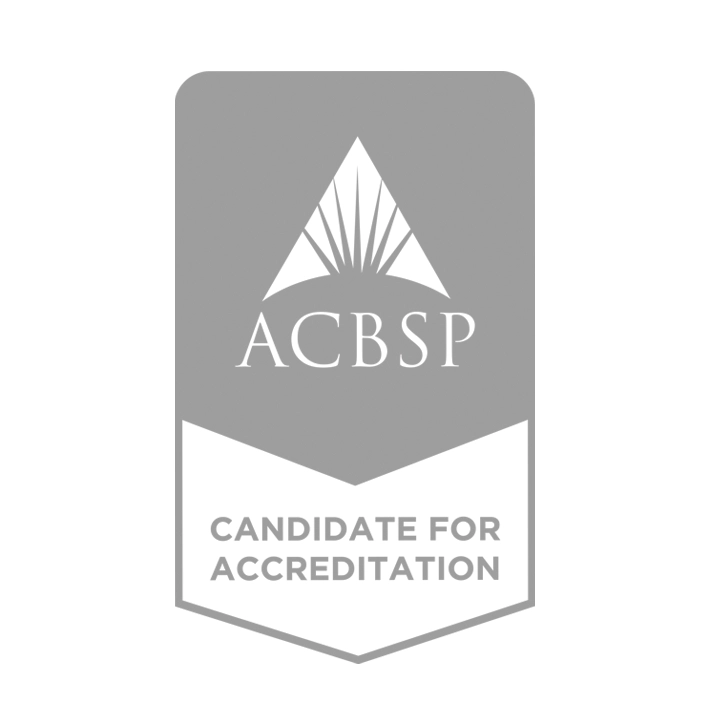

Business Management - International Business
Overview
This program prepares students to understand our increasingly global marketplace. Students develop the in-demand skills needed to analyze and manage international trade for global organizations.
Enhance your employability skills for a successful career in global business. The Business Management – International Business Ontario Graduate Certificate program is designed to prepare university and college graduates for a rewarding career in international business management. In addition to building management skills, students will develop the competencies to investigate, analyze and manage domestic and international business activities, in order to successfully conduct business on a global scale.
Curriculum emphasizes international sales and marketing, trade, research, supply chain management, law and project management in a Canadian business setting. Activities, simulations, projects and case studies are used to simulate a work environment and prepare students with the practical experience to be successful in their careers upon graduation.
The work term that concludes the program provides students with the opportunity to gain valuable work experience that will assist them in finding permanent employment after graduation.
Upon graduation, students will have met the academic requirements for application to the Certified International Trade Professional (CITP) designation and be prepared to write the Canadian International Freight Forwarders Association (CIFFA) exams.
Admission Requirements
- University degree
The admissions process is competitive and meeting the minimum academic requirements does not guarantee admission.
Lambton College reserves the right to alter information including admission requirements and to cancel a program or course at any time; to change the program curriculum as necessary to meet current competencies or changes in the job market; to change the pathways to third-party certification bodies; or to withdraw an offer of admission both prior to and after its acceptance by an applicant or student because of insufficient applications or registrations or over-acceptance of offers of admission. In the event Lambton College exercises such a right, Lambton College's sole liability will be the return of monies paid by the applicant or student to Lambton College.English Language Requirements
- IELTS of 6.0
- or -
- TOEFL iBT 69
- or -
- Passed Lambton Institute of English placement test
Meeting the minimum English requirements does not guarantee admission. Students with higher English proficiency scores will receive priority in the admission assessment process.
Costs
- Term 1 $7,881.43
- Term 2 $7,095.51
- Term 3 $7,795.51
- Term 4 $0.00
Total Cost of Program
Tuition fees are estimates and are subject to change each academic year. Fees do not include books (unless specifically noted), supplies or living costs.
Lambton College reserves the right to alter information including admission requirements and to cancel at any time a program or course; to change the location and/or term in which a program or course is offered; to change the program curriculum as necessary to meet current competencies or changes in the job market; to change the pathways third-party certification bodies; or to withdraw an offer of admission both prior to and after its acceptance by an applicant or student because of insufficient applications or registrations or over-acceptance of offers of admission. In the event Lambton College exercises such a right, Lambton College’s sole liability will be the return of monies paid by the applicant or student to Lambton College.
Accreditation Council for Business Schools & Programs (ACBSP)
This program has achieved ACBSP Candidacy status which means that this program aligns with global business standards and prepares you for success in your career.
ACBSP Candidacy signifies our commitment to high quality, industry relevant education, ensuring you gain not just knowledge but a competitive edge in the business world.

Additional Fees
WIL Project Fees
Students who are not successful in securing a co-op or fail to meet the co-op requirements will need to register in CPL-5559 WIL Project.
There is an additional fee of $2,100 for each student enrolled in the WIL Project course.
Important Dates, Deadline & Late Fees
For additional information on registration dates, deadlines and late fees please refer to Registration Dates and Deadlines.
Student Fees
A student services fee is included in your tuition.
Health Insurance Coverage
Emergency medical insurance is mandatory for all international students at Lambton College. This includes students who are full-time and part-time and who are on a co-op. This insurance is provided by GuardMe - a third party insurance provider.
See Insurance Costs & DetailsTechnology Requirements
In order to keep pace with the requirements of each and every course in your program, Lambton College requires that each student have access to a laptop while studying at our college.
Courses
Applications of Marketing Concepts
This course uses a case-study approach to introduce students to foundational concepts in the ever-changing marketing environment. Students analyze and solve common marketing challenges through the evaluation of real-world marketing case studies. Students examine the current marketing environment including concepts such as environmental scanning, segmentation, targeting and positioning, and marketing research. Students deepen their understanding of the marketing mix with analysis of product development and branding, pricing, distribution, and the many types of traditional and digital promotions. In addition to case analysis, students further develop their abilities to make informed marketing decisions through simulation exercises designed to emulate real-world scenarios faced by marketing managers.
Professional Communications
This course is designed for international students with diplomas or degrees. It focuses on polishing communications skills acquired through one's academic career and workplace experience. Through various business writing and speaking scenarios, students learn Canadian business practices and communication styles, incorporating inclusivity and diversity. Close attention is paid to proper incorporation of the intellectual property of others to ensure academic integrity. Students will practice organized and dynamic speaking and will strive for polished business documents.
Introduction to Managerial Accounting
The managerial accounting course provides students with skills to become highly effective in environments where quick decisions are required. Students learn to use financial information to make quick strategic decisions including how to use data to evaluate the effectiveness of current operations. Learning to maximize the profitability of operations, students interpret financial statements and supporting financial data that drive decision making. Topics covered in this course include cost management, analysis of financial performance, application of pricing strategies, and budgetary planning and control for a business enterprise.
Workplace Communication Application & Analysis
In today's management and administration workplace, having strong computer skills is essential. This course provides students with resources and guidance to develop skills in Microsoft Office applications, focusing on three key areas: Word, Excel, and PowerPoint. While learning about these programs, students develop skills in time management, accountability, and their ability to follow direction.
Human Resources Management
Effective Human Resources Management (HRM) is critical to the success of organizations today. This course will provide an overview of the key concepts of HR management and will include some history and theory of the HR function and important terminology. It will introduce students to the core competencies of effective HR practitioners and allow for self-assessment against these competencies. We will be discussing core HR practice areas such as Strategic Planning, HR Planning, HR Administration, Talent Management, Training Learning and Development, Performance Assessment, Total Rewards (including Compensation and Benefits) Employee and Labour Relations and Health and Safety in the workplace. In addition, the course looks at the legal environment for effective HR management, and the role of HRM in mergers and acquisitions and organizational change management.
Feasibility of International Trade
The course Feasibility of International Trade examines what individuals in organizations need to know and do to ensure the success of new international ventures. Careful research, analysis and planning are necessary to examine the organization's current state, to identify promising opportunities and to analyze potential outcomes, both positive and negative.
Job Search & Success
This course provides student with skills and knowledge to help support their career search and succeed in the workplace. Students align their personal skill set and goals to guide them on their career paths. They will learn how to effectively conduct a job search, build a professional and well-tailored resume and cover letter, and develop and practice interview techniques. Students will also develop their personal brand to help support effective career networking and aid in their job search. Teamwork and collaboration in the workplace are also discussed. Self-reflection is used to inspire insight and support their professional career journey.
Principles of Economics
This course is a survey of the principles which apply to our society's efforts to solve economic problems. The survey includes an examination of fundamental economic problems, economic models, the nature of the Canadian economy, employment, inflation, the role of governments in managing the economy, and the functioning of demand, supply, and firms within the market system.
International Trade Finance
Currency exchange fluctuations, political instability, and force de majeure events, are integral considerations to international financial management. This course examines how organizations can manage their finances and mitigate financial risk by selecting appropriate transaction methods and tools for their international trade activities. Learners will consider negotiation terms, non-payment dispute resolution and cash flow management.
Development of Products & Services for an International Market
The course examines how organizations develop, adapt or customize goods and services in relation to international trade. This course explores differences in regulatory, legal, cultural and consumer requirements that might impact product and service development and adaptation or may require compliance. Organizations must analyze how these differences may impact cost, product design, packaging, labelling, product testing, service delivery, sales and marketing. Organizations should follow objective and thorough research, development and testing processes that align with their overall business strategies in order to maintain a competitive edge in their international target markets.
International Transportation & Trade
This course introduces students to several modes of transportation including truck, air, rail and ocean. Students will learn about the key parties involved in trade and the primary Canadian trade routes. The transfer of title between the buyer and the seller and the associated risk, payment and documentation responsibilities under Incoterms® 2010 will be emphasized. The formation of sales contracts, determination of chargeable freight weight and assessment of profit or loss on a shipment will also be discussed
Introduction to Freight Forwarding
Students will be exposed to common methods of international payment and the documentation and parties involved under each method. Risk assessment and risk management techniques from the perspective of both the buyer and seller under various methods of payment will be highlighted throughout the course. Other key topics that will be examined include cargo insurance, packaging, security, dangerous goods, and costing.
Project Management
This course will provide the student with an overview of the structured processes and knowledge areas of project management within the context of organizations. It will contrast the differences between operational management and project management. It will provide the student with numerous tools and techniques used to initiate, plan, execute, monitor and control, and close a project. Students learn the vocabulary, definitions, principles and concepts of project management and working in a project team.
Leadership in Change Management
One of the few constants in today's competitive business environment is change. Change leaders must have knowledge of what drives successful change, what challenges successful change, the options available, the ethical issues associated with change, and understand organizational theory and behaviour and its impact. Leaders are facing change as it relates to sustainability, climate change and the implications for business in the ESG realm. The environment, social-justice, diversity, and inclusion are all considerations and present organizations with both opportunities and challenges as we look with urgency to our collective futures. Effective leaders must identify the correct approach to leading transition within an organization, utilize skills required to lead in chaotic and fast-paced environments, optimize organizational structures, analyze, and assess change effectiveness, and ready their organizations to thrive. Through case study, readings, teamwork and class discussion, this course explores these knowledge areas and provides opportunity to practice and develop leadership skills relevant for successful change management.
Global Value Chain
The course examines aspects of the primary activities, distribution and inventory management, and the supporting activities of document management and procurement, which are integral to international trade logistics. This course studies how organizations obtain resources and what they need to know to control and manage logistical systems in relation to international trade. Circular economy principles and sustainable business models are also explored in an effort to develop new post-consumer revenue streams whilst conducting business in an environmentally responsible way.
International Market Entry Strategies
This course examines what individuals in organizations need to know and do to ensure the success of new international ventures. Careful analysis and planning are necessary to choose the most effective market entry strategy for a new venture. The chosen strategy must be successfully implemented and managed, which includes complying with applicable local and international laws and demonstrating cultural competence to develop and maintain intercultural relationships. The course also presents practical and relevant information for organizations to build and operate international business in an ethical and socially responsible manner.
Financial Analysis & Budgeting
This course is an introduction to the essentials of financial management with a view for wealth maximization of a business enterprise. Topics covered in this course include the following: analysis of financial performance, cost-volume-profit analysis, financing alternatives and costs, management of working capital, budgeting, and capital investment decisions.
International Sales & Marketing
The course International Sales and Marketing details considerations an organization must make when promoting and selling products and/or services beyond domestic borders. This course examines important concepts related to marketing, sales and e-commerce in countries with different laws, political and economic environments, and cultures. International marketing attempts to position an organization's products and services, brand and communications so the organization meets the needs and preferences of each target country or region. Marketing activities are designed to generate awareness and demand for the organization's offerings, and sales activities should convert awareness and demand into purchases.
International Business Capstone Project
This capstone course helps students integrate their prior learning in various functional disciplines with a focus on international market expansion. The course focuses on strategic decision-making within an international business drawing from insights related to changing business environment and the capabilities of the firm. The course uses in-class activities and a computer-based simulation game to help students appreciate the importance of each business function to firm performance and implement responses to ever-changing international business situations. The course also examines the importance of sustainable business practices, highlighting social and environmental considerations for international business managers.
Co-op Work Term
Co-operative education provides students with the opportunity to apply classroom learning to the workplace, undertake career sampling and gain valuable work experience that may assist students in leveraging employment after graduation.
WIL Project
Work Integrated Learning (WIL) Project is aimed at enriching students by connecting different program areas of study, cutting across subject-matter lines, and emphasizing unifying concepts. The focus of the WIL Project is to make connections between study and industry by engaging students in relevant and meaningful activities that are connected to and practiced within the professional workplace. WIL Project allows students to enhance and strengthen their employability prospects post-graduation by fine tuning skills and knowledge and meeting the expectations of today's employers. Students are required to attend the scheduled shifts in the WIL office, reporting to the WIL Supervisor. Weekly real-world challenges are presented in the WIL office, designed by industry professionals. In addition to the weekly assigned deliverables, students are also offered professional development sessions, and exposed to industry guest speakers, enhancing their opportunity to develop their professional network.
Co-op Eligibility & WIL Project Fee
In order to be eligible to secure an approved full-time co-op work term (CPL-1049), students must have a GPA of 2.8 or greater and complete all the co-op eligibility requirements. Failing to do so will require students to enroll in CPL-5559 WIL Project at an additional cost.
Contact
Centre for Global Engagement
LAMBTON COLLEGE SARNIA
1457 London Road
Sarnia ON N7S 6K4
After Graduation
Employment Opportunities

Graduates can work in a broad range of domestic and international employment sectors including, manufacturing, market research, education, retail, insurance, freight forwarding, brokerage houses, banks, financial institutions, consulting firms and international business.
Accreditations & Certifications
Forum for International Trade & Canadian International Freight Forwarders Association
Upon meeting graduation requirements, graduates will possess the necessary course preparation to apply for the Diploma in International Trade from the Forum for International Trade Training (FITT) as well as preparation to write the Canadian International Freight Forwarders Association (CIFFA) exams.
This program enables students to fulfill the educational component for Certified International Trade Professional (CITP)® designation from FITT.
Obtaining the CITP designation through FITT is an optional component of this graduate program.
See the FITT website and the CIFFA website for additional requirements such as, mandatory examination and work experience to complete the designations. Separate registration, eligibility and fees determined by FITT and the CIFFA will apply. The additional registration fees are not included in the Business Management - International Business program tuition. The cost associated with achieving the FITT educational credential is $575 + HST which includes access to all six FITT Skills eBooks, transfer of credits to FITT, and access to the applicable FITT assessment(s).
The cost to write the CIFFA exam is $800 + tax. We recommend that you write your CIFFA exam during your academic break if possible to use as an additional credential when applying for work-term positions.
Looking for Support After Graduation?
The International Graduate Services & Support Centre (GSSC) is a place dedicated to assisting International alumni as they seek employment and settle into Canadian life following graduation.
Post-Graduate Employment
International students who successfully complete their programs of study at Lambton College may be eligible to apply for a Post-Graduation Work Permit (PGWP) Program. This program allows students to gain valuable Canadian work experience.
A work permit under the PGWP may be issued for the length of the study program, up to a maximum of three years. A post-graduation work permit cannot be valid for longer than the student's study program, and the study program must be a minimum of eight months in length. The length and approval of the PGWP is determined solely by Immigration, Refugees and Citizenship Canada (IRCC).
Students must meet the eligibility requirements to apply for a post-graduation work permit.
Immigration Regulations & Changes
Immigration regulations are legislated by the Federal Government of Canada and are subject to change at any time without notice. Students are responsible for ensuring that they are in compliance with all Immigration, Refugees and Citizenship Canada regulations at all times during their studies and while in Canada. Lambton College staff are not authorized to provide advice or guidance on immigration-related matters. Prospective applicants and current students should consult the Immigration, Refugees and Citizenship Canada website or call the IRCC Call Centre at 1-888-242-2100 to answer or clarify any immigration-related questions or information.
Co-op
About Co-op
Students in this program have the opportunity to gain valuable work experience by applying classroom learning during co-op experiences.
Learn more about co-op terms and the roles and responsibilities of students and co-op advisors.
Program Capabilities
Upon graduation, students should be capable of the following workplace skills:
- Interpret and record business transactions, and prepare basic financial statements.
- Integrate knowledge of capital investments, credit planning, and finance into relevant aspects of work
- Utilize the concepts and business applications of computer information systems
- Apply the concepts of human resource management and organizational behaviour to establish and maintain effective working relationships
- Analyze a marketing situation and develop appropriate advertising recommendations and sales promotion strategies
- Compare and contrast various pricing strategies and their effects on sales and profits
- Prepare and deliver a sales presentation
- Utilize effective oral and written communications in all aspects of work completed
- Apply effective interpersonal skills
- Articulate various economic principles and their relationship to business
- Complete all work according to relevant and accepted business ethics and within the scope of corporate responsibility
- Assist in the logistical functions of an international business
- Implement strategies utilizing domestic and foreign government programs, policies, and agencies which facilitate international trade
- Evaluate the viability of marketing a product or service in an international market or markets
- Complete all work in a manner consistent with law and professional standards, practices and protocol
More Information
Student Responsibilities
- Course and program delivery schedules are proposed and subject to change for each intake.
- Students are required to bring their own laptop with wireless capability.
- Students are advised to bring an official copy of their most recent police clearance, driver's license, and vaccination record from their home country.

Technology Requirements
It is recommended that students purchase a laptop with a Windows operating system.
Internet Speed Requirements
For best performance for students learning remotely, an internet connection with a minimum of 40 Mbps download and 10 Mbps upload speed is recommended in order to effectively use video conferencing and remote lecture delivery software as well as, other online resources remotely. Due to the large area over which students may be dispersed, we are unable to recommend a specific provider, so you will need to inquire around your area to find one that best suits your needs.
Minimum Laptop Requirements
In order to access the internet and virtually-delivered software and courseware, student laptops should include the following at a minimum. By meeting the following specifications, students will be equipped to access software and courseware on their laptop through the internet:
- Intel i5 8th Gen Processor or equivalent
- 16 GB of RAM (with a minimum of 8 GB)
- 100 GB HDD or more
- HD Graphics
- Webcam with a microphone
- Wireless 802.11n/ac 5ghz capable
- Windows Operating System (Windows 11)
Please note that Chromebooks and MacBooks may not support all software required for your program; students should verify compatibility with their professors.
Software
To ensure students are getting the most our of their classroom experience, some software will be required.
Lambton College has made this software easily accessible online. Students can leverage our Microsoft Office 365 software packages and services. In addition, much of the software you require for your courses will be available on demand for use on any device - on or off campus.